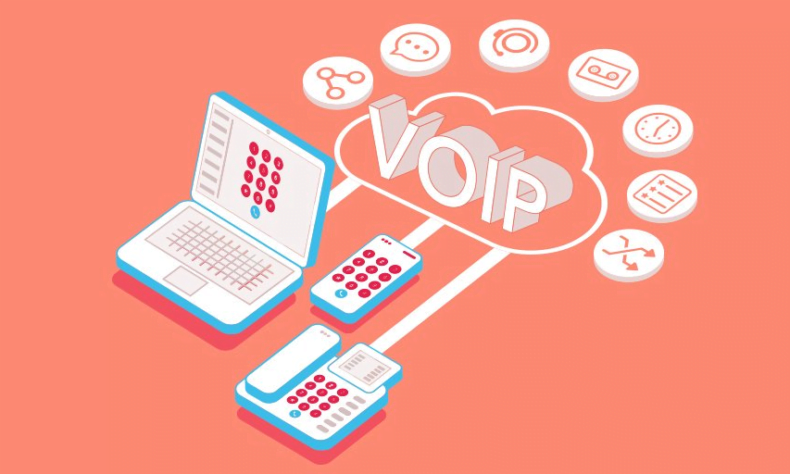

What is a VoIP phone system?
VoIP has a reputation for being one of the most affordable business phone systems on the market. Almost everyone has heard of VoIP technology, but what does VoIP mean for your business? Well, VoIP technology, also known as IP technology, allows businesses to optimize the internet to make and receive calls instead of using calls over a public switched telephone network.
With the rise in internet speed, VoIP technology is being rapidly adopted by businesses for its many benefits. Internet calling is vastly cheaper and easier to handle when compared to traditional phone services.
When it comes to VoIP technology, you might have a few questions that haven’t been answered. So, if you’re thinking about switching to a VoIP phone system before making a purchase, you’ve come to the right place.
Below are some important factors to consider and questions to ask before upgrading your business phone system.
- Evaluate Your Business Needs
Business needs

Evaluating your business needs, both current and future, is important to determine what kind of service you need to get the best return on your investment. Realizing the answers to these questions will help you choose the best VoIP service provider and subscription plans for your company.
- Are most calls internal or external? Do different departments have different calling needs?
- Does your company already have a PBX system in place? Is it already an IP-enabled PBX, or is it a legacy PBX?
- How fast do you think your company will expand in the future? Are you going to have to add or remove extensions?
- How much hardware will you need to replace? Is it just the phones or phones and the PBX system?
- Can you guarantee back power for your internet connection in case you lose power?
- Evaluate Your Internet Connection
Internet speed

Since VoIP technology relies on the internet, having a fast internet speed is a must. Better internet speed equals better quality of your VoIP service.
Internet Connection Evaluation Parameter
- Upload and Download Speeds
The faster the data can travel, the significantly greater your download and upload speeds are, which is important for maintaining call quality. Faster upload and download speed also ensure that there will be no lag in real-time communication with HD audio.
- Bandwidth
A better bandwidth helps the connection to maintain several simultaneous connections at once. It is important to note that VoIP only uses a portion of the internet usage, and there will be general office internet usage added alongside it. This means that your internet must have enough provisional bandwidth to allow other applications to run smoothly.
- Jitter
Jitter is the delay between the digitized packets sent and received, and more delay means the sound quality and latency suffer. Downgrading the VoIP system will compromise the call quality, so ensure that your connection has the signal integrity to carry the messages without much delay.
- VoIP Phones
There are two options if you want to change the phone and phone systems used in your company; buy adapters that enable legacy telephones to make VoIP calls, or your office can upgrade to IP phones.
- Office Extensions
Office extensions

Evaluating the number of extensions of your business is important since it can affect the overall costs of your business phone system. Traditional extensions, for instance, add up every month for a business. The upkeep and physical maintenance of traditional extensions, in addition to the cost, is very expensive. You will also need to hire a technician every time a new employee is hired to remove or add extensions around the office physically.
That’s where the debate of traditional PBX vs. Hosted PBX arises. The traditional hardware of organizing extension lines, PBX divides the main office number into different employee extensions.
A hosted PBX also divides the main number into extensions, but the difference is that it uses the internet. All the extensions are wireless, and VoIP technology makes all the calls cheap and sometimes free.
- Remote Workers
Remote workers

Business VoIP service is the perfect phone system if you have remote workers due to its wireless capabilities. Office extensions are programmed to ring in an assortment of WiFi-enabled devices on your preferred devices. This makes it possible for employees to work and collaborate productively, bypassing geographical limitations.
- Mobile VoIP
Most VoIP providers offer mobile capabilities, with the most popular method being the mobile VoIP app. The users can use their mobile VoIP app whenever there is a WiFi connection. This is a good option if your company has several remote workers who prefer to use smartphones as the main means of communication.
- IP Features Your Business Needs
VoIP features

A company needs more than simple phone calling capabilities to keep communication and daily operation smooth in today’s modern age. Let us look at some of the important VoIP features for businesses.
- Auto-Attendant
Auto-attendant is a basic feature of a high-end IP phone system that answers incoming calls to your business and routes those calls appropriately based on the caller’s needs. This feature ensures that your customers get their concerns resolved immediately and efficiently, leading to an increased first call resolution rate and customer satisfaction.
- Find me, Follow Me
Find me, Follow me is a popular feature that allows employees mobility and still receives calls as if they are sitting at their desks. This VoIP feature is beneficial for business in any industry, especially if the job requires employees to travel.
They can still answer calls no matter where they are. Employees have more flexibility with this feature, and customers are most likely to get their calls answered instead of talking to voice mail.
- Conferencing
A good VoIP system supports audio and video conferencing for effective team collaboration. VoIP conference phones allow multiple individuals to participate in team collaboration virtually, including other features like screen sharing, exchange files, and more.
- Convergence
The basis of unified communication is the convergence of different technologies to work together. Phone calls, voice mail, e-mail, instant messages, video conferences, faxes, and other types of communications can all be handled by the same communications system. If you’re in an area where you can’t receive phone calls, for example, the system can send you an instant message notifying you that someone is attempting to contact you.
SMBs with limited budgets can now compete with larger enterprises more easily and affordably, thanks to VoIP technology. With VoIP advanced features, businesses can provide their customers with the kind of service standards previously only aviled to large corporations.
With these easy steps and questions, you can pinpoint your business needs and find the right service provider for your business and bank account.
Or, you can simply contact FreePBX, the one-stop solution for all your telephony needs. Aavaz PBX offers their customers customized contact center solutions and gives them the boost they need to survive in the competitive industry and thrive.





